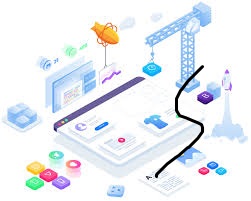Analytics and Reporting Tools for Informed Decision-Making
A significant advantage of CMS frameworks is the ability to collect and analyze data on user behavior and content performance. Analytics tools can give insights that help improve content strategy, user engagement, and site efficiency.
- Traffic Analysis
Analytics integrations (e.g., Google Analytics) allow you to see detailed information about site visitors, including where they come from, how long they stay, and the pages they visit most often. - Conversion Tracking
For e-commerce or lead-generation sites, conversion tracking tools show how many visitors take desired actions, such as making purchases, filling out forms, or subscribing to newsletters. This data can help refine marketing strategies and optimize content. - Content Performance Metrics
By monitoring metrics such as page views, bounce rate, and time spent on each page, you can determine which content resonates most with your audience. Use this data to prioritize similar content in future planning. - SEO Insights
Some CMS frameworks have built-in SEO reporting tools that provide insights into keyword performance, backlinks, and search engine rankings. This data can guide your content team in optimizing existing pages or creating new, high-performing content.
Customizable Dashboard for Tailored Insights
A customizable dashboard allows each user to create a personalized view of important metrics and tasks, enhancing productivity and focus.
- Widgets for Key Metrics
Users can select widgets that display metrics relevant to their role, such as traffic stats, workflow tasks, or recent content updates. This allows users to access the information they need at a glance. - Task Management and Notifications
For team members heavily involved in content production, task management widgets provide quick access to assigned tasks and deadlines. Notification widgets ensure that important alerts are not overlooked. - Integration with Third-Party Tools
Some .NET CMS platforms allow dashboards to integrate with external tools, displaying data from sources like Google Analytics, social media platforms, or CRM software directly in the CMS
Accessibility Features for Inclusive Content
Ensuring your content is accessible to all users, including those with disabilities, is not only ethical but also improves SEO and broadens your audience. Here’s how CMS frameworks help you enhance accessibility:
- Alt Text for Images
Many CMS platforms encourage the use of alt text for images, which is essential for screen readers and improves SEO. Adding descriptive alt text helps ensure that visually impaired users understand the content of images. - Keyboard Navigation and ARIA Labels
Accessible CMS frameworks support keyboard navigation and ARIA (Accessible Rich Internet Applications) labels, making it easier for people with disabilities to navigate your site. - Color Contrast Tools
Some CMS platforms include color contrast tools that verify if text and background colors meet accessibility standards. This ensures that text is readable by individuals with visual impairments. - Closed Captioning and Transcriptions
For sites that feature multimedia content, providing captions or transcripts ensures that everyone, including those with hearing impairments, can access your content.
Training and Support for Teams
To ensure your team can leverage all the CMS framework’s features effectively, consider training sessions or dedicated support channels.
- Onboarding Programs
Many CMS platforms provide onboarding programs for new users, including tutorials, documentation, and training sessions that help team members understand the platform’s capabilities. - Dedicated Support and Knowledge Base
Look for CMS frameworks that offer strong support resources, like a knowledge base, forums, or dedicated customer support, to assist your team with any challenges they may face. - Regular Updates on New Features
CMS frameworks frequently update their software, adding new features and improvements. Regular training sessions or update newsletters keep the team informed on how to use the latest features effectively.

Conclusion
In conclusion, .NET CMS frameworks provide robust, flexible, and scalable solutions for building and managing dynamic websites and applications. They provide various customization options, enabling developers to adapt functionality to meet specific requirements. The ability to integrate plugins and modules for features such as e-commerce, SEO optimization, social media connectivity, and forms ensures that you can quickly enhance your website’s functionality without the need for custom development.
Additionally, .NET CMS platforms allow the creation of custom templates and themes, enabling developers to maintain brand consistency and deliver a unique user experience. With features like responsive design and advanced CSS/JS customization, Websites can adjust to different devices and user preferences. API integrations further extend the capabilities of these CMS frameworks, allowing seamless interaction with external services such as email marketing platforms, CRM systems, and analytics tools.
